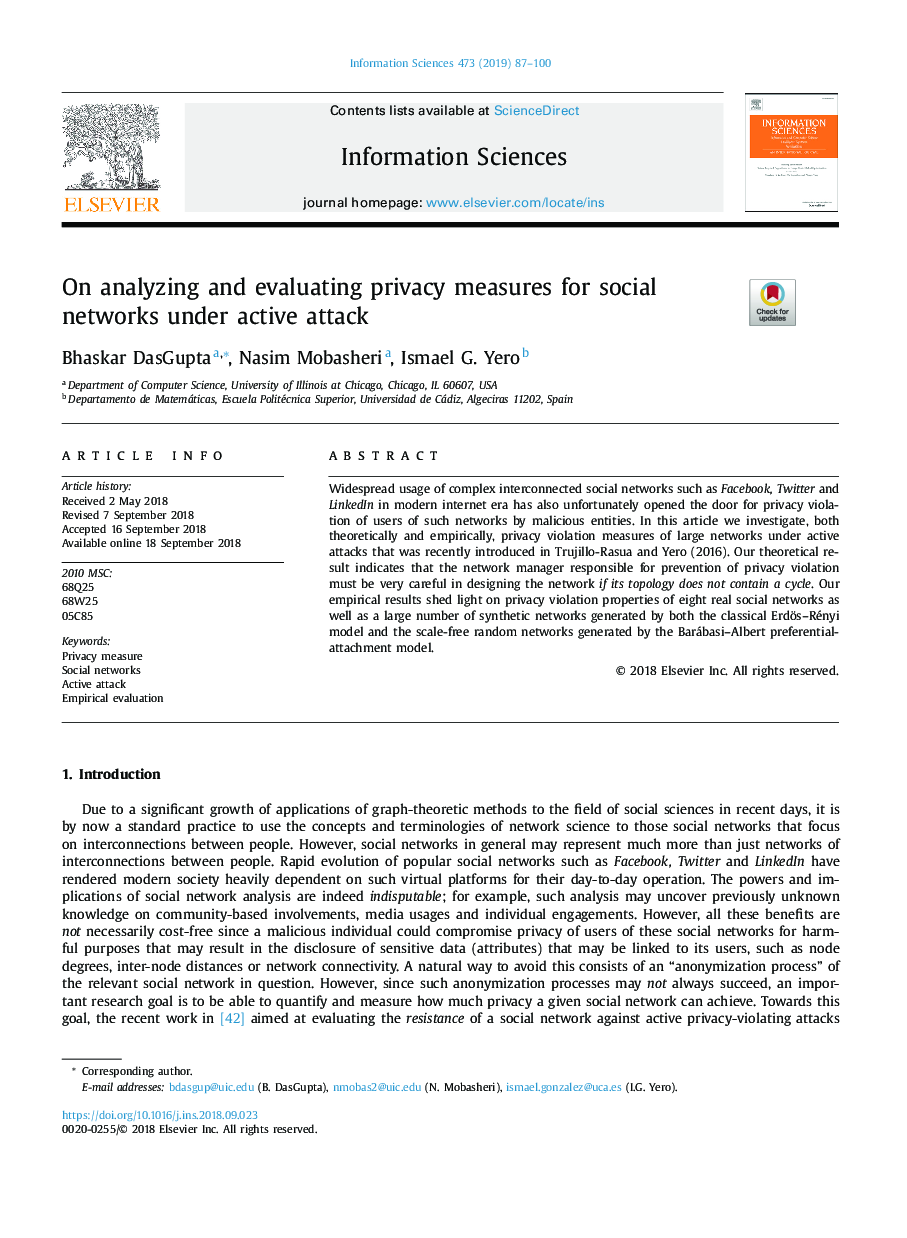| Article ID | Journal | Published Year | Pages | File Type |
|---|---|---|---|---|
| 10225717 | Information Sciences | 2019 | 14 Pages |
Abstract
Widespread usage of complex interconnected social networks such as Facebook, Twitter and LinkedIn
in modern internet era has also unfortunately opened the door for privacy violation of users of such networks by malicious entities. In this article we investigate, both theoretically and empirically, privacy violation measures of large networks under active attacks that was recently introduced in Trujillo-Rasua and Yero (2016). Our theoretical result indicates that the network manager responsible for prevention of privacy violation must be very careful in designing the network if its topology does not contain a cycle. Our empirical results shed light on privacy violation properties of eight real social networks as well as a large number of synthetic networks generated by both the classical Erdös-Rényi model and the scale-free random networks generated by the Barábasi-Albert preferential-attachment model.
Related Topics
Physical Sciences and Engineering
Computer Science
Artificial Intelligence
Authors
Bhaskar DasGupta, Nasim Mobasheri, Ismael G. Yero,
